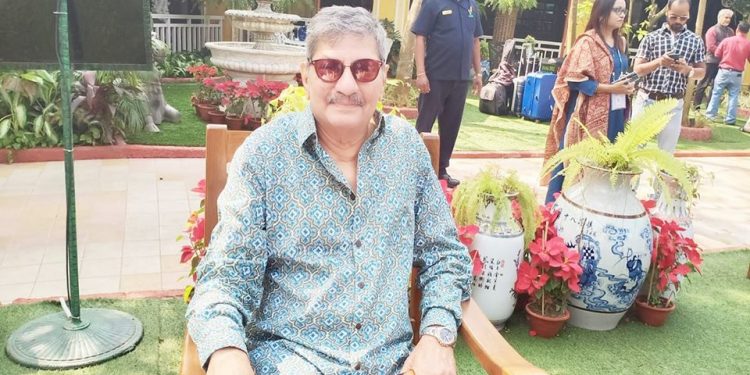Actor by accident, producer by compulsion and director by choice, Amol Palekar’s role in glamorising commoners on screen cannot be understated. Having delivered masterpieces like Chhoti Si Baat, Gol Maal and Rajnigandha, he has established himself as one of the all-time greats in the industry. In a tête-à-tête with Chaitali Shome of Orissa Post, he threw light on his monumental journey. Excerpts…
- How was your experience of returning to stage with the play ‘Kusur’ last year?
- The response has been overwhelming but I was apprehensive about my ability to be able to perform again. I was in doubt due to the long gap. However, I remembered everything and performed. It was a full house whenever and wherever the play was enacted. I gave 10 consecutive performances. It’s a gift to all my fans who wanted to see me again. The challenge is always to try something else.
- Do you believe that cinema exploited your talent enough?
Yes, I think so. Unfortunately, we go back by a label or yardstick as one always refer to my popular commercial movies. My performance in Shyam Benegal’s Bhumika, Gharonda, Kumar Shahani’s critique of capitalism Tarang and Vidhu Vinod Chopra’s suspense thriller Khamosh are completely different from what I am known for. In my first directorial venture Akriet, where I am a villan but at the same time I am the protagonist, is unheard of. Even comedy is diverse and I was given complete freedom for experimentation in diverse roles. In fact, I am more privileged as an actor.
- What is your take on regional cinema in today’s time?
It’s unfortunate that nobody talks about regional movies. All we can think of is Hindi movies. Regional cinema has always made Indian cinema richer. Audiences of the West understand Indian cinema through its regional movies as those have made a bigger impact out there. Indian cinema is the bouquet of various regional cinemas.

- Some Indian films, not necessarily mainstream, are getting international acclaim. What is your take on that?
It has always been the case that regional cinemas are making it big internationally. It’s time to introspect why we are not looking at these vibrant and exciting cinemas and learn their techniques, stories and movie making theory.
- Do you think in recent times dissent is in danger and we are fast becoming intolerant as a nation?
I don’t think we are becoming intolerant as a nation. The powers in India have become a little more intolerant and aggressive by not listening to the dissent. The moment there is a dissent its unfortunately equated with being anti-national or anti-government. All I have to say is that becoming anti-government is not necessarily becoming anti-national. If I don’t state my disagreements in a democracy, then how will a smaller voice be heard.
- Do you believe that censorship mars the creative quality of films or theatre?
I have been fighting against censorship for films and theatre for years. There is a petition in Mumbai High Court against censorship for theatre which will have a final hearing very soon. I am constantly working against unnecessary censorship that mars creativity.






































